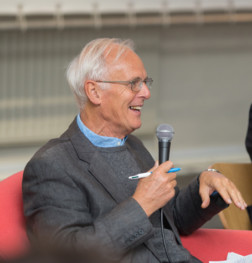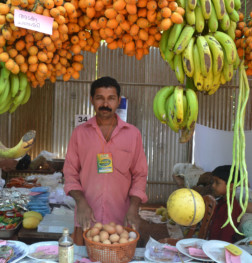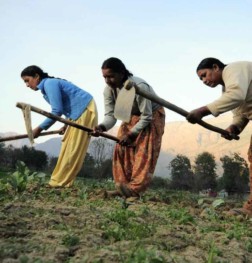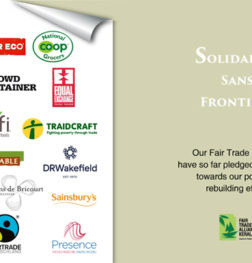
Fair Trade Coconut Oil: the story behind the creaminess of Alter Eco truffles.
01 February 2017
Tomy Mathew is the founder of Calicut’s and Kerala’s first FT Organic Grocery store. Tomy and his wife Seepja founded Elements in 1999, after moving back from Chennai. The establishment of Elements allowed farmers of Kerala to catalyze the now thriving Fair Trade movement in Kerala.
Tomy’s journey into the Fair Trade movement was birthed from his involvement as an activist in the New Social Movements of Kerala. He was among the founding editors of the avant garde journal Patabhedam, that introduced Kerala to the themes and concerns of the new social movements. This also took him in the early 1990s to the Iraqi Saudi border as a member of the International Gulf Peace team, an interventionist group that worked on the ground in Iraq to stop the war. His experience in Iraq added to Tomy’s awareness of the the interconnective web of injustice.
In 1999 Tomy returned to his home state of Kerala. Seeing that there was no outlet for selling organic produce, Tomy and Seepja opened Elements. They established Elements to bridge what Elements described as the physical as well as the emotional distance between the Sensitive Farmer and the Conscious Consumer.
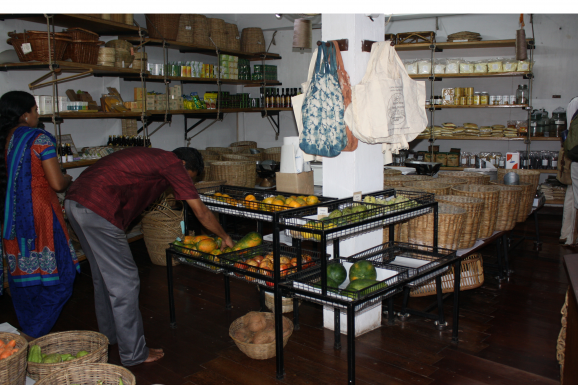
Elements business remained primarily as an organic store until 2003 when a farming crisis, most critically caused by the plummeting prices of agricultural commodities, struck India and particularly Kerala. The crisis caused such volatility in the market, farmers were burdened with mounting debt, incapacitating their farms and families with desperate measures by farmers even ending their own lives. It was at that time that Tomy (and a handful of people involved in the Farmers movements in Kerala) started researching Fair Trade on an organizational level and seeing how it functioned systemically.
Around the same time, Simon Pare, the Director of Max Havelaar France came to India to visit a mutual friend, Balz Strasser (who was researching the small holder farming reality of Kerala). Simon heard about the group’s interest in Fair Trade, and sent Karine Laroche, a staff member of Max Havelaar, to meet with the group of farmers to discuss how best to organize and structure a Fair Trade model.
Meanwhile, the farming crisis was mounting. Farmers in Kerala organized themselves independently under various banners and took to the streets to protest the organizational systems that were perpetuating and profiting from the crisis. The farmers in the hill tracts of Kerala who primarily grew cash crops for the international markets were in the forefront of these agitations.
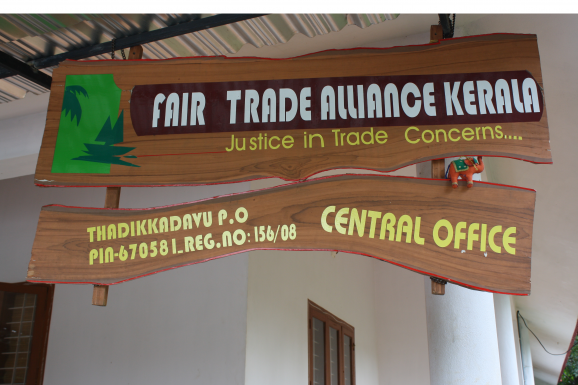
It was in this milieu that FTAK (Fair Trade Alliance Kerala) was established. They became formally constituted in December, 2005 and Fair Trade Certified in April, 2006. The organization’s membership was primarily drawn from the mass movements of peasants in the Northern districts of Kerala.
Elements became an Alternative Trading Organization (ATO); a partner and channel for FTAK to organize, negotiate, communicate and execute sales. The FTAK model gained incremental successes because they worked through consensus, giving voice to all members. They negotiated small scale production sales, so as to not boom and bust. Other international FT organizations began to take notice of FTAK, particularly those committed to upholding the small farmer centrality of Fair Trade. Unlike other FT Farmer models, FTAK did not become a Cooperative in its legal sense. In India, organizations that incorporate as Cooperatives (Cooperative Societies) are subjected to host of regulations that can undermine farmers agency and even lead to Government takeover. There are several examples in India of farmer cooperatives or marketing cooperatives being subjected to political control and being subservient to the interests of political parties. Therefore, FTAK incorporated as a Membership Society which protected their status as an autonomous working collective.
FTAK started to gain notice from new customers. A French food packer sought to source all of their cashews from FTAK, which lead to the rapid increase in its membership to about two thousand in its first year (although Tomy and the other promoters would have preferred a more incremental growth in membership). Ultimately, the order from the French company only came to be one container. Regardless, the initial interest forced FTAK and Elements to work overtime to find buyers for the cashews they had harvested in response to the initial request.
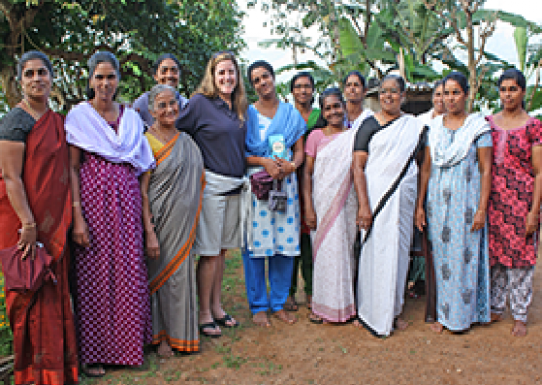
Even though FTAK was not yet Fair Trade or Organic certified by 2005, FTAK and Elements were gaining a highly respected reputation as businesses of integrity. They received their first order from CTM Altromercato in Italy before becoming Fair Trade certified, and several entities firmed up orders pending certification, having witnessed first hand the vibrancy and integrity of the organization.
As the prospects of Fair Trade exports loomed, Elements (which was till then a single organic store selling products in Calicut) had to build its infrastructure and financial resources to meet the requirements of a professional business, that could tackle the international market place. Elements needed investor support to maintain the burgeoning infrastructure. Initially, Tomy asked Balz Strasser if he could have a short term loan from his friends in Switzerland. Ueli Baruffol, was happy to be of assistance. Realizing Ueli and Balz’s interest was more lasting and sustainable than just a short term loan, Elements offered them equity participation: 44% equity stakes to 3 Swiss friends, while Tomy and his wife hold the other 56%.
As sales began to steadily grow, FTAK asked its members to think into the future and plan for systemic sustainability. They created what they now call the FT + 3 model. It was a metric for measuring the organizational success of FTAK. The model evaluated not only the effectiveness of FT, but the effectiveness and systemic inclusion and planning for Biodiversity, Food Sovereignty and Gender Justice in their farming, sales and business transactions. It is this model that is in effect today.
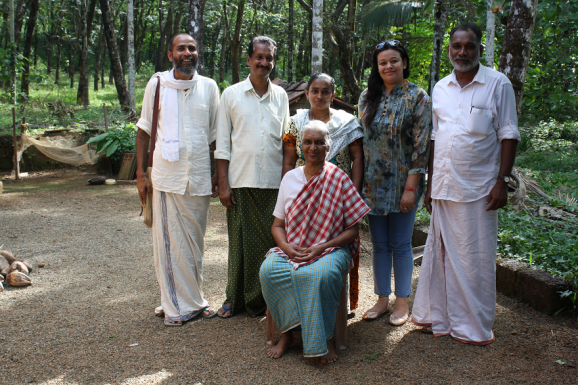
Elements continues to broker sales for FTAK, but do so under the edict that FTAK is obligated to seek the highest price they can for the product they are selling. It is not only understood, but expected that if a buyer offers a higher price for a product than what Elements can offer (on behalf of a buyer), prior to signing a contract, that FTAK is obliged to take the higher price offer. This is agreed to as a business practice in order to protect the farmer, and uphold the intention that FT puts the farmer first.
This blog post was written by Kara Powis, our Organizational Development Director, after her visit to the FTAK cooperative, where we source our organic and pure coconut oil for all four varieties of our chocolate truffles.
For more information about Fair Trade Alliance Kerala, check out this recent article in Economic Times.
Original article shall be found here: Fair Trade Coconut Oil: the story behind the creaminess of Alter Eco truffles.
